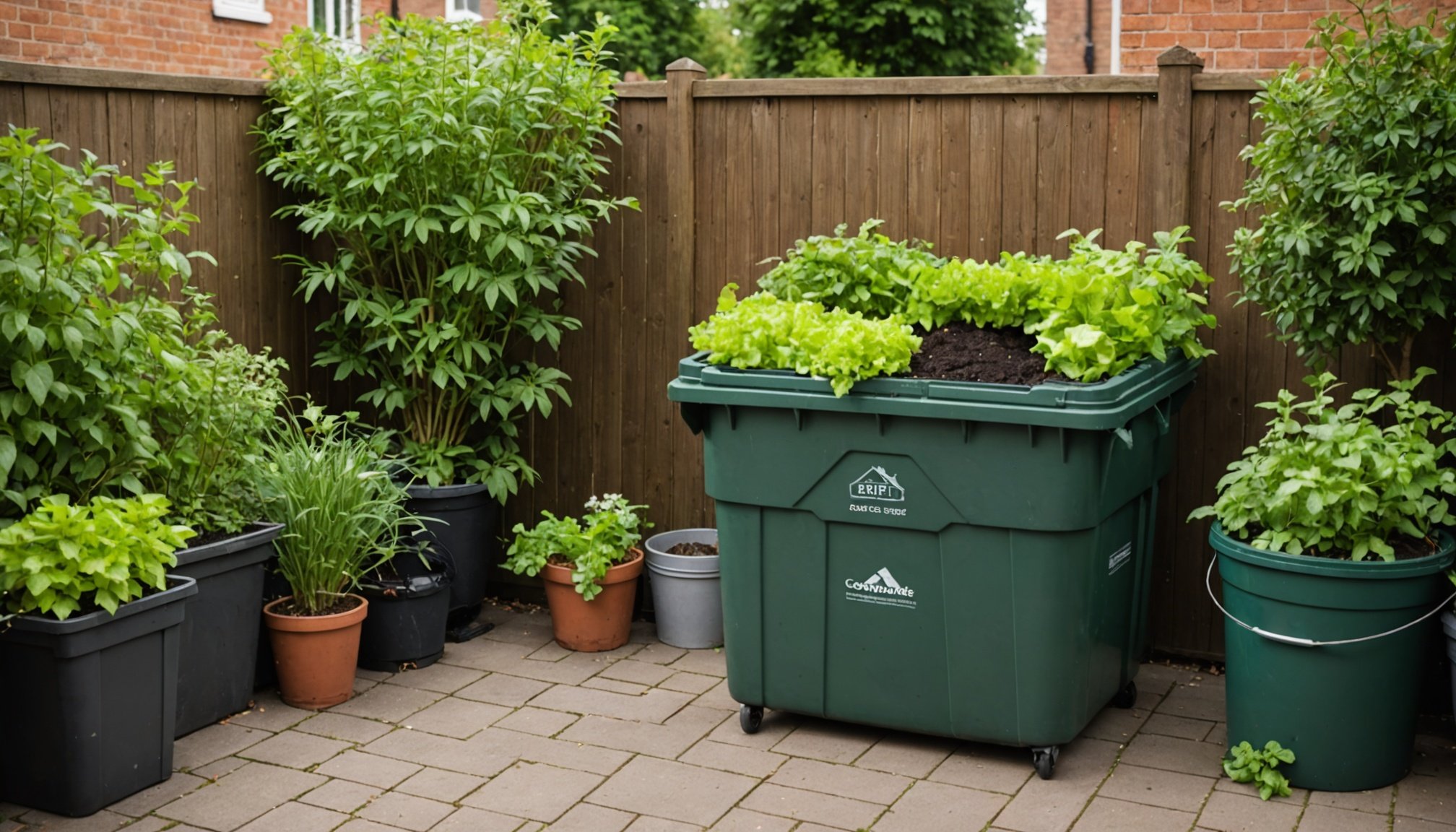Practical Composting Methods for Small Spaces
For those looking for budget composting methods suitable for limited spaces, urban composting presents numerous possibilities. Small space solutions include worm bins, Bokashi systems, and compact composters, each with distinct advantages and cost implications.
Worm bins are ideal for indoor or balcony settings. They involve using worms to break down kitchen waste into nutrient-rich compost. They’re economical, needing minimal space and investment. However, they require attention to moisture and temperature.
Have you seen this : Enhance Elderly Comfort in Your UK Flat: Simple Upgrades Without Major Renovations
Bokashi composting is an excellent choice for those who wish to compost all food scraps, including meat and dairy. It uses fermenting microbes, making it faster than traditional methods. The system is compact, with a moderate initial cost for the kits and grains.
Small composters, or tumblers, provide a neat solution for tiny backyards. They require more space compared to worm bins but offer faster compost production with aerobic decomposition. Small composters can be pricier due to their durable construction.
In the same genre : Effective Strategies to Reduce Heat Loss in Your Stone-Built Cottage Windows in the UK
Investing in any of these urban composting solutions can result in efficiently managed waste. Choose based on your specific needs in terms of cost and space availability, and embrace the benefits of composting even in the tiniest of environments.
Maintaining Your Compost in Limited Space
For those engaged in composting in townhomes or small outdoor areas, maintaining compost quality can seem challenging but is manageable with some key practices. Start with an emphasis on aeration, ensuring your pile isn’t compacted. Regularly turning the compost introduces oxygen, a crucial element for decomposition. Proper moisture levels are equally important; your compost should feel like a damp sponge, neither too wet nor too dry, to aid the microbial activity.
Temperature control is another critical aspect. Ideally, compost should be warm to ensure effective breakdown but not excessively hot, which can harm beneficial organisms. Use a simple thermometer to monitor it.
In small outdoor spaces, issues like pest control or odour can arise. To tackle these, avoid adding meat or dairy if possible and ensure waste is adequately covered. A lid or cover over your compost can help deter pests. Additionally, maintaining a balance between “greens” (such as food scraps) and “browns” (like dry leaves) can minimize odours and support efficient decomposition. For urban dwellers, these optimal practices make small-scale compost care feasible and rewarding.
Local Resources for Composting
Engaging with community composting resources can greatly enhance your urban composting experience. In the UK, various programmes and organizations are dedicated to supporting urban composting, such as local councils offering compost bins and education initiatives to encourage sustainable waste management. Joining a local composting program not only aids in waste reduction but also provides valuable community connections and shared knowledge.
Community compost bins are often accessible in urban areas, allowing residents to contribute their organic waste and benefit from the resulting compost. Shared gardening initiatives also play a crucial role, bringing people together to cultivate community gardens using locally produced compost, which enriches soil health.
To find these resources, check with your local council or environmental groups for details on available supplies and expert advice tailored to UK townhome settings. These resources offer practical composting advice, helping you select the best methods and supplies to suit your needs. Engaging in local programs not only supports personal gardening goals but also fosters community spirit and environmental sustainability, making urban composting a richly rewarding endeavor.
Navigating Local Regulations
Understanding the composting regulations in the UK is crucial for those venturing into urban gardening. Local ordinances vary but typically emphasize guidelines to minimize odours and pests—a common aspect when managing backyard composting. These regulations often require compost bins to be properly sealed and maintained to prevent rodent infestations. Additionally, many councils provide recommendations for location, suggesting placement away from neighbouring properties.
Urban gardening laws also impact composting practices. Some areas may restrict compost pile size or dictate acceptable materials, ensuring environmental safety. Familiarize yourself with these requirements by contacting local authorities or visiting council websites to access specific residential composting guidelines.
To ensure compliance while embracing sustainable composting, employ strategies such as balanced waste ratios and adequate aeration. These methods not only adhere to regulations but also enhance decomposition efficiency. For those in urban settings, understanding the impact of local regulations helps avoid fines and supports a more eco-friendly approach. Additionally, staying informed about adjustments or developments in local policies can further guide responsible and efficient waste management within city landscapes.
Integrating Composting into Urban Gardening Practices
Integrating composting into urban gardening is essential for enhancing soil health. High-quality compost enriches urban gardens, providing essential nutrients that lead to robust plant growth. Urban gardening techniques often require innovative methods due to limited space. These include vertical gardens and container planting, where compost can significantly improve soil quality.
Incorporating compost can be achieved through techniques like top-dressing and mixing into potting soils. These methods maximize the benefits of compost, such as improved soil structure, moisture retention, and nutrient supply. Ensuring an even distribution of compost in the planting area can prevent nutrient hotspots and promote uniform plant development.
Inspirational case studies showcase the successes of urban gardens across the UK, where vibrant community spaces have been transformed using locally-sourced compost. These examples highlight not only the environmental benefits but also the community engagement and educational opportunities that arise from urban composting initiatives.
Local organic practices emphasize the use of compost to minimize the need for chemical fertilizers, creating a more sustainable urban gardening environment. This fosters biodiversity and helps urban gardeners nurture thriving, resilient green spaces, proving that even small-scale gardens can have a significant environmental impact.











